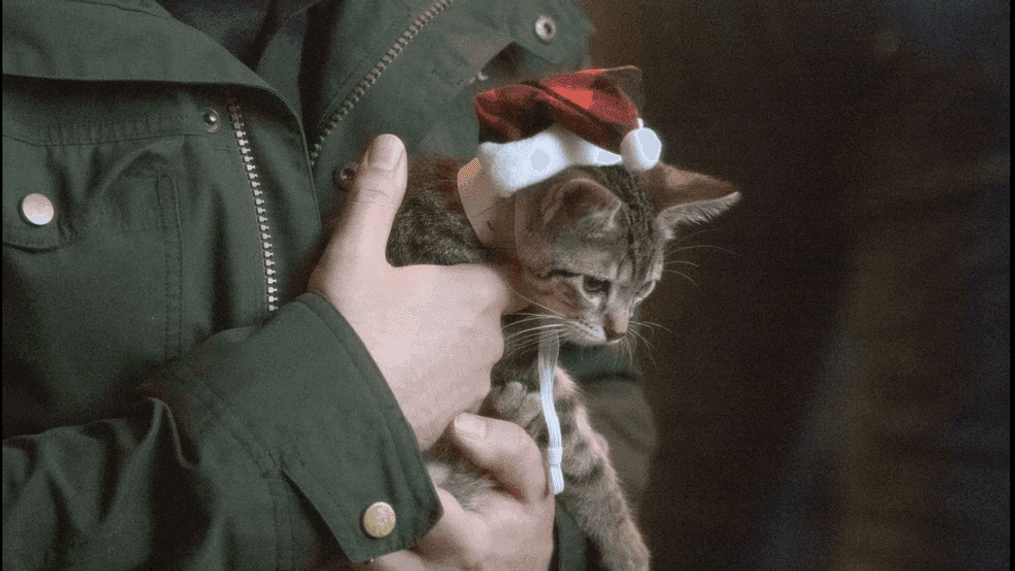Tips for preventing holiday hazards for pets

FILE - A kitten in a Santa hat during the holidays. (Jimmy Bernhard, KOMO News)
SEATTLE (KOMO) — The holidays are a great time to come together with family and friends and even our four-legged family members can enjoy the festivities. But it's important to protect your furry friends from holiday mishaps.
Below are some of the common dangers for pets during the holidays and how you can avoid them to ensure a safe holiday season.
Decorations and giftwrap
Although Santa has his helpers, it's best not to have your furry friend help you prepare for the holidays.
Make sure your Christmas tree is properly anchored so it doesn't tip and fall, injuring your pet. Decorations like tinsel is also very appealing to kitties, but if ingested, it can lead to an obstructed digestive tract, severe vomiting, dehydration and possible surgery, according to theAmerican Society for the Prevention of Cruelty to Animals (ASPCA).
Pets can also run the risk of choking if they ingest small ornaments. Pet parents should also keep things like wrapping paper and ribbons away from your curious pets due to the potential for digestive problems and choking hazards.
Unsafe plants
Your favorite holiday plants such as poinsettias, holly, and mistletoe look great on the mantel, but they can cause serious complications for your pet if eaten.
Holly, when ingested, can cause pets to experience nausea, vomiting, and diarrhea, the ASPCA said. Mistletoe can cause gastrointestinal upset and cardiovascular problems.
The ASPCA added, many varieties of lilies can cause kidney failure in cats if ingested. Experts recommend opting for artificial plants made from silk or plastic, or choose a pat-safe bouquet.
If your pet does consume any unsafe plants and shows any of the above symptoms, contact your veterinarian.
Noise and fireworks
As we get ready to ring in the new year, the loud noises from fireworks can be distressing for pets.
If your animals get anxious and doesn't like loud noises, you can create a quiet space for them in your home and consider using noise-muffling products or calming aids. If necessary, consult your veterinarian about prescription anxiety medications.
Avoiding other holiday dangers
Although the holiday’s have some of the best food, avoid sharing holiday foods including chocolate, raisins, animal fats, and certain bones.
Make sure you keep those holiday cocktails away from your pets, too. If your pet ingests alcohol, it can become weak, ill, and may even go into a coma, according to the ASPCA.
Also, make sure to stick to your pet’s regular feeding and exercise schedule as much as possible. It’s best to limit holiday treats, since sudden changes in diet can lead to gastrointestinal upset.
If you're looking to stuff your pet's stocking, the ASPCA recommends chew toys for dogs that are indestructible that can be stuffed with healthy foods or chew treats that are designed to be safety digestible.
Long, stringy things are a kitty cat's dream, but the most risky toys for cats involve ribbon, yarn and loose little parts that can get stuck in their intestines. A good kitty stocking stuffer would be a new ball that's too big to swallow, a stuffed catnip toy, or the interactive cat dancer, the ASPCA said.
